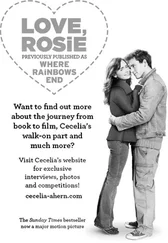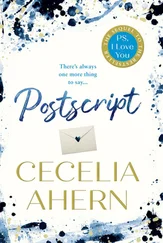Everyone quiets down to watch.
The woman picks up the slip and then tosses it on the floor at the Whistleblowers’ feet.
There’s a pause, then the baton is whipped out and it takes the woman down by the backs of her legs. She falls forward and bangs her face; her lip bursts open, blood gushing, and she yells out in pain. This causes two things to happen. Some women retreat and immediately dress, others attack. I’m away from it all, at the back of the circle, stunned, terrified by what is happening. We are crammed in here, being treated like animals.
Suddenly the Whistleblowers start whistling. We look around at one another, confused. They’re not asking for silence, they’re whistling as if they’ve caught somebody. But everybody here is Flawed and so we look around in confusion—can a Flawed be caught twice? It would be unheard of.
Most of the Whistleblowers leave their stations as if it has already been rehearsed, blowing their whistles and pushing through the crowd of Flawed. Instead of surrounding a Flawed woman, they stop at a Whistleblower, who is looking around at them, terrified. She is completely surrounded by her colleagues. The sounds of the whistles are so loud in the echoey warehouse that she and all of us have to block our ears. They gather around her, huddle around her in a circle, and start prodding their fellow Whistleblower with their batons. And they’re not joking, either.
“Take your clothes off, Karen.”
“It’s an insult for someone like you to wear our uniform. Get it off,” another one yells.
“You know what you did, Karen,” one jeers.
“We heard what you did,” another sings.
They continue to heckle her, poking her, prodding her, until she screams at them all to stop. She screams for help, but none of us do. Moments ago she was forcing us to remove our clothes, and now she is suffering at the hands of her colleagues, a punishment for something she did that we’ll never know of. A mistake at work? Something in her personal life? Whatever it is, they know, they found out. Karen is not safe. They planned this attack on her, even worse for her this way because she’s been taken down in front of hundreds of Flawed.
The Whistleblowers push her to the floor and start to remove her clothes, through much kicking and yelling. They succeed in removing the uniform and putting the slip over her head. She tries to get her uniform back, but it’s useless. She can’t get out of the warehouse: They won’t let her out; it’s locked and she’s trapped among us now. She is completely powerless, just like the rest of us. She retreats from all of us, to the corner to cry.
This stops any further fights from breaking out for a moment. I move to the wall, back against it so that no one can see my sixth scar, and I dress in the red slip. I’m looking down at myself, feeling the emotion bubbling up inside me, when a scrap starts between two women on the far side of the room and brings me out of my self-pity. It sounds vicious, and they start lashing out at each other.
“She took my slip!” one shrieks.
“I did not,” another snarls. “I had it first. I put it down for a second, and you grabbed it!”
People stand by uncertainly, not wanting to get involved. I look at the Whistleblowers and see the lead Whistleblower laugh, the delight on her face is obvious, and I literally see red. I charge through the crowd, push through the women standing around the fight, and launch myself at the two women fighting. I pull them apart and break them up immediately. They’re bigger than me, older than me, stronger and tougher than me. They look at me in surprise.
“They. Are. Laughing. At. Us,” I say. I meant to whisper it so the Whistleblowers couldn’t hear, but instead it comes out as an angry menacing hiss.
One woman isn’t listening to me, still ranting about the dress, but I have the attention of the other. She looks at the Whistleblowers, sees a group of them chuckling together at us arguing over scraps of clothes. Her fists clench.
“Do you want them to laugh at us?”
She shakes her head.
“You are giving them exactly what they want,” I say, feeling the anger surging through me.
“You’re Celestine North,” the woman says.
This grabs the attention of the larger woman, who finally turns to me.
“But this,” the bigger woman growls, clenching her hand around the slip, “doesn’t fit me. It fits her.”
“It’s too tight, you can see what I ate for breakfast .”
“This thing won’t even go over my head. And that is two sizes too big for you. Use your common sense!”
“Tough! I got it first!”
The Whistleblowers have a right old giggle again at the argument over the dismal scraps of material, the only things to hide our modesty. The arguing women glare at them, argument paused. I sense their rage. Now they’re on the same side.
“Work together.” I keep my voice low.
“No whispering, North!” the lead Whistleblower yells, stepping closer.
I ignore her, keeping my voice low. “The minute they put us in this room together, we became friends. We are all on the same side in here. We are against them , not one another.”
I take the slip from the bigger woman’s hands. “Look, stretch the fabric like this.” I put my arms into the slip and widen my arms, the cotton stretching. Then I lift my knee and push it with my knee, stretching it further. The red turns a pinkish color as the fabric stretches. I hand it to the leaner woman. “Give her the bigger size.”
She thinks about it, then sighs and hands over the larger slip. They look at the slips in their hands, like two petulant children.
“Now, smile.” I lighten my tone.
“What?” They look at me in confusion.
“Smile,” I say perkily, through gritted teeth.
They attempt to smile.
“Chins up, let’s get through this with some dignity.”
They lift their chins, and it has the effect of working its way through the crowd. Our show of togetherness wipes the smirks off the Whistleblowers’ faces.
The Whistleblowers blow their whistles so loudly, together, that we have to block our ears. We’re moved like cattle into a series of single files, broken up only by the long fish-gutting tables. I stand behind Lizzie. Even Whistleblower Karen must embark on the next journey, whatever that is, and she knows what’s coming and looks pale, lost, as though she’s going to vomit.
The old lady continues to cry in the line beside me. She stands in her tight red slip, stripped of all her modesty, her pride, her aged flesh sagging, her varicose veins on display. Bodies burst out of the slips, boobs too big, butts and hips straining the fabric. Others are too tiny, having to pull up the strings and tie bows at the top to protect their bodies. All of our shapes are on show. A girl who looks younger than sixteen but can’t be, due to Flawed rules, tries to hide her changing body with her hands and arms, red-faced.
As women, we dress to please ourselves, to hide our imperfections, to accentuate our best features. Our clothing is an extension of who we are, a reflection of what we are thinking and feeling. This is ripped from us now, we are laid practically bare, all the parts of us, the parts we want to hide, the parts we are ashamed of, or the versions of ourselves we don’t want anybody to see. And even if anybody isn’t self-conscious of their bodies, the wearing of a uniform is simply demeaning. They have stripped us of our individuality, our uniqueness. They have told us we are not to be differentiated, we do not matter, we are insignificant. We are just numbers, a weakened army of imperfections.
And we all wonder the same thing: What is this in aid of? What’s going to happen next?
Читать дальше
Конец ознакомительного отрывка
Купить книгу












